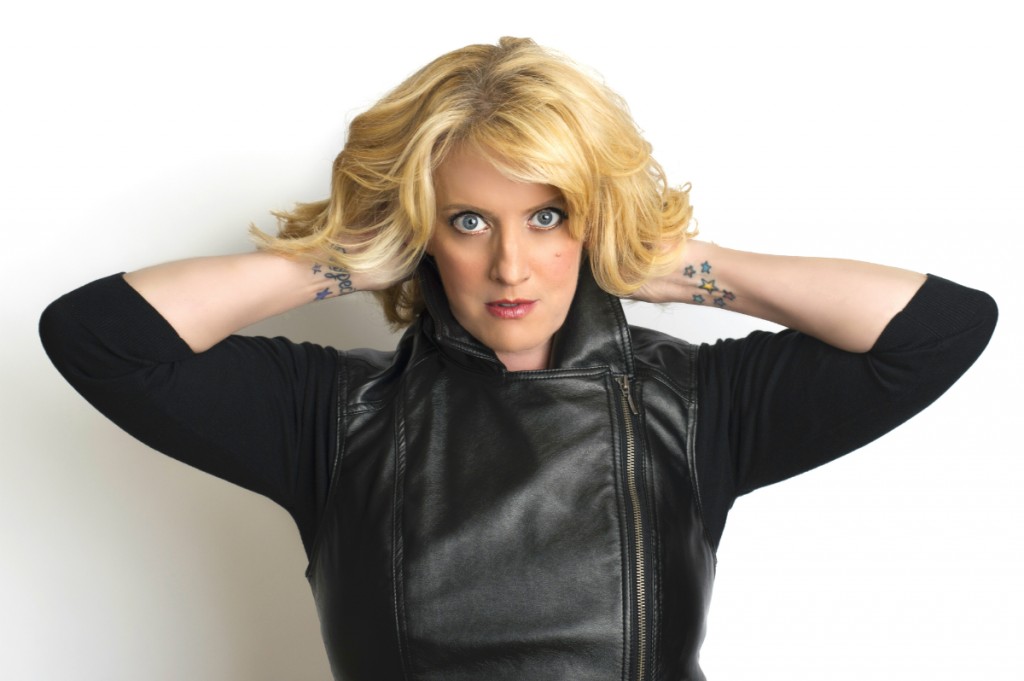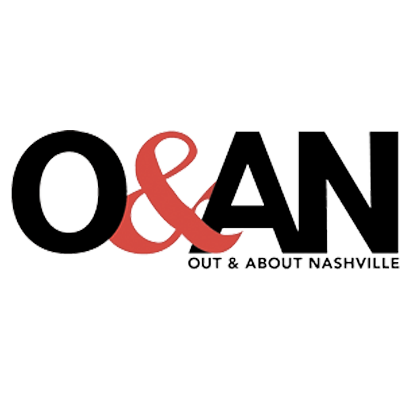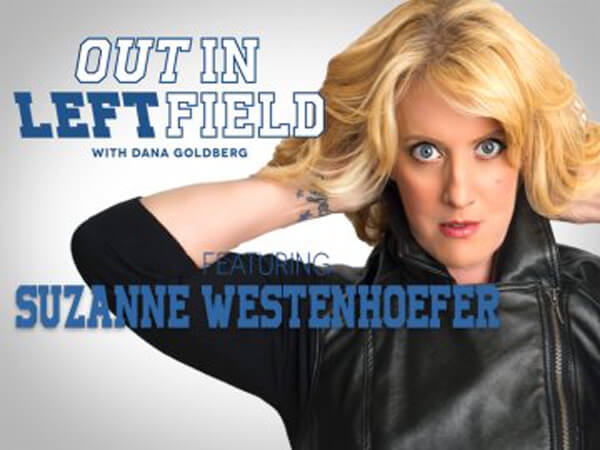Originally published by The Daily Camera on 10/23/2015.
By Quentin Young

When Suzanne Westenhoefer started doing stand-up in the early 1990s, the number of “out” lesbians who were performing in New York’s traditional comedy clubs was about one — she was it.
There were other gay comics, of course, but Westenhoefer was all but alone in being open about her sexuality, and, even more unusual for the time, making it central to her act (during a YouTube-preserved 1994 performance in Utah, she says, “If you didn’t know who I am, I’m Suzanne Westenhoefer. I’m a lesbian comedian. All right, calm down”).
Westenhoefer had something else going for her. She was really funny. You didn’t have to be gay or even liberal-minded to laugh, for example, at her routine about feeling disoriented at Home Depot: “I’m like a 6-year-old in the bank at The Home Depot.”
As the first lesbian comedian to land a coveted HBO special and a spot on “Late Night with David Letterman,” she helped pave the way for Ellen DeGeneres and other gay stars who have made homosexuality no big deal in popular culture.
Westenhoefer continues to perform stand-up around the country, and she’s scheduled to appear at First Congregational Church on Saturday as part of a benefit for the nonprofit Out Boulder. The Los Angeles resident spoke with the Daily Camera by phone last week from Provincetown, Mass., where she performed during Women’s Week, a series of events devoted to lesbian culture.
During the interview, she talks about her role as a trailblazer, her impression of Boulder and fudge. The interview has been edited for space and clarity.
Q: A press release says you never do the same show twice and you never write anything down. Is that true? It sounds pretty extraordinary.
A: It is extraordinary. And it is 90 percent true. I do not write stuff down. I just come up with it when I’m on stage. I’m in a zone. But over the years — because I’ve been doing this now professionally for almost 24 years — over the years I have learned, well, I’ve tried, to remember things that I’ve said that are particularly funny and use them the next night.
Q: In the ’90s, it seemed like your status as a pioneering lesbian comedian was central to your performance. And then in your later stuff you’re a comic first who happens to be a lesbian. Is that a fair reading?
A: I think the world has changed. And I’ve changed with it. When I first started in 1990 in New York City clubs, straight clubs, and I was one of maybe three gay comics in the world, and the other two were not doing straight clubs, it was a big deal. So you had to make a big deal about it. You couldn’t just go out there and go “My girlfriend, my girlfriend,” you know what I mean? You had to answer all these questions that the audience had in their brain: (lowers voice) “Well, why isn’t she a physical education teacher, I don’t understand,” you know what I mean? And also for the gays, we didn’t have a lot of voices, so I wanted to be a voice for us, and it was a big deal to the straight people in the audience. That was 1990-something, and then it started to change. Now I am still an activist, a lesbian, a woman. Hillary (Clinton). A leftist. You know, still all that stuff … But in my actual stand-up show it’s less important to go, “I’m a lesbian” … Because the world is different.
Q: Do you have a sense of yourself having something to do with that?
A: I have, especially recently, been told that, OK? But it makes me feel not particularly humble to say it. But apparently there are many people who think that. And I’ve just learned this year that at some colleges I am included when they’re teaching women’s rights or gay rights or one of those courses that you take about gay history or whatever, and I’m like “Oh, my, god!” … Because, honestly, basically I’m a little girl from Lancaster County, Pa. You know what I mean? That’s who I think am. You don’t think of yourself as being historic. It’s weird.
Q: Who were your comedic heroes when you were starting out in 1990?
A: I never got to meet him, and I got to meet almost every comic, but the one that I thought was a genius was George Carlin. His sense of words — and he was seriously political and making statements, but he didn’t hit you over the head with it, he just snuck it in.
Q: So what was it about you growing up in rural Pennsylvania that allowed you to be so honest about who you were, whereas most other people couldn’t do that?
A: I think it was because of my mom. I think it was because of what I saw. My dad left my mom and my two older sisters and I in 1964 … I was like 2 years old, but as I grew up I saw in the ’60s how my mom got treated like shit because she “lost her husband” … In the ’60s she couldn’t buy the house. Our grandparents had to sign the loan, because a man had to sign the loan. She couldn’t do it. Or she couldn’t go and get a Sears or a J.C. Penney credit card. And I watched how my mom got treated, and I think it burned me as a younger kid … (In high school) I was always starting some fight, like, “No! We need to have a salad bar in the cafeteria! And none of the kids are going to go in there and eat until there’s a salad bar.” I was one of those obnoxious, you know — “We’re going to have a sit down!” (laughs). And then when I started stand-up, that just made so much sense.
Q: What does your mom think of what you’re doing now?
A: Oh, she’s proud as shit. I’ll tell you what she said to me, but this has to be easily 10 years ago, she said, “I can’t believe they pay you for what you used to have to move your desk out to the hall for when you were in grade school and junior high.”
Q: You have a lot of observational humor in your routine. Has anything happened today or recently that you’re thinking about turning into a joke?
A: I had two silly accidents in the last two years — and I’m not going to go into it, you got to come to the show — and so I had to get some fucked-up surgery and I had to do all this kind of crazy shit, so I have awesome stories about it.
Q: So what are you up to nowadays mostly?
A: What am I doing now? I’m working with people who are trying to write a book about my life. I’m not sure how I feel about that. Let’s just see how that goes.
Q: Who are these people?
A: I can’t tell you. It’s weird. It’s L.A. stuff … But I do still work on trying to get on television. I’m still an actor. After all these years, I still take acting class and I still go on auditions. But I’m paying my mortgage and feeding my cat with the comedy.
Q: What can you tell me about this book? Is it a biography?
A: Yeah, a biography, yup. They think my story is interesting. There’s a lot going on with that, like I’m not sure how I feel about a lot of it. And I don’t want to talk about that, because it would sound mean, and you’re the press, and I gotta be careful with you (laughs).
Q: A lot of people find Boulder easy to make fun of. Do you have an impression of Boulder?
A: It seems like it’s the chillest place ever. Like everything’s OK. Everything’s good. (Assumes chill voice) “Have a glass of wine, or one of our handcrafted beers. Relax.” You know what I mean? “Wear your turtleneck sweater. Take a little walk.” It’s so chill. That’s my impression of it.
Q: You’re wrong.
A: (Chill voice again) “We got this.”
Q: I hate to disabuse you of that impression but, um …
A: Damn … I like Boulder, I think it’s beautiful and cool, and that’s the reputation it has in the world. You know that, right? Of it being beautiful and kind of preppy and pretty and all that? I’ll give you an example. I just did a show, and they said “Where are you going after P-town?” and I go, “Well, I’ve got a show in Salt Lake City,” and people go, “Ugggh.” And then I go, “And then I’m going to be in Boulder, Colo.,” and people go, “Ooo, Boulderrr! Oh, that’s greeeat! My friend saw a concert there, it was all, like, at the Red Ro …” where is it? Red Rocks? … The reputation of Boulder, it is kind of like the cool place, you know. It is chill, all right? So you could try to be all agitated, but it ain’t going to fly … (Sound of chewing) I’m sorry, I’m eating fudge.
Q: Is that your lunch?
A: Um, it sadly is. The guy who runs one of the fudge places here, I’ve known him for like 23 years. He knows that I like the little stale edges of the fudge, and he saved them for me, and I have a whole bag of these little crunchy edges … I’m just going to have this for lunch. Because I can’t eat like this, you know, I eat pretty clean in Los Angeles. And then you come out here (East Coast), and you’re like, “Fuuudge. Taaaffy.” You know? “Piiizza.” So sad.
Quentin Young: quentin@dailycamera.com and twitter.com/qpyoungnews



